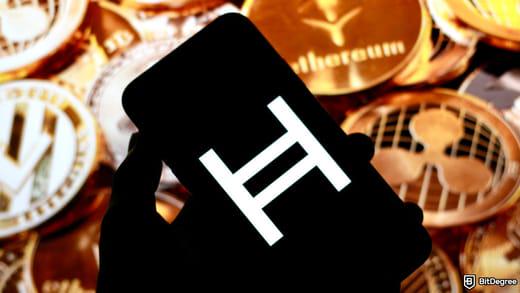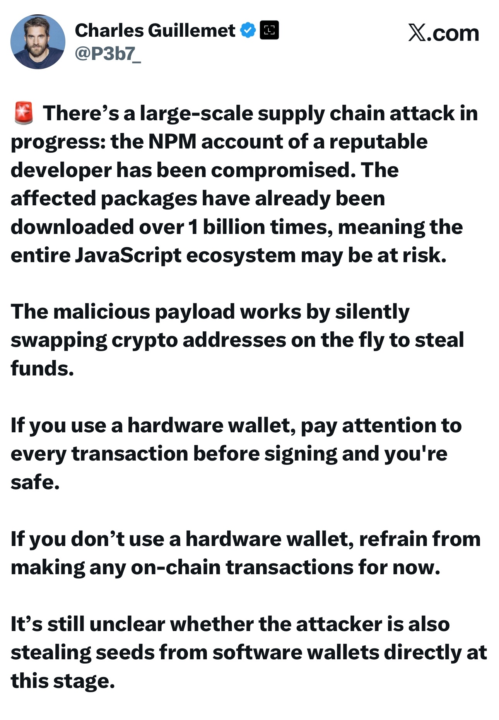Talk of the Town! #Tokenization is Coming!
Tokenization is the process of converting real-world assets — like stocks or real estate — into digital tokens on a blockchain. These tokens represent ownership or economic rights, making traditionally illiquid or high-barrier investments more accessible, fractionalized, and potentially more liquid. Here’s why this matters: instead of needing millions to invest in a prime piece of real estate or private equity, you could own a fraction via tokens. That opens access to new investors, enhances liquidity, and redefines how we think about ownership. 🏢 Real Estate Tokenization: Real-World Use Cases 1. St. Regis Aspen Resort - Elevated Returns tokenized ~19% of this luxury hotel via a security-token offering, raising $18 million. kevin-beutler.com+2nervecells.ai+2 - This deal allowed fractional investment: people around the world could own a slice of high-end property without buying the whole resort. Webisoft+1 - The tokens traded on secondary markets, demonstrating how real estate can gain liquidity via blockchain. Webisoft 2. London Mayfair Hotel - A luxury hotel in Mayfair (UK) was tokenized, turning high-value real estate into tradable digital equity. Tokenizer.Estate Blog - Gulf investors and others could own fractions of the property, enabling a more democratized investment model. Tokenizer.Estate Blog
0
0
🚀 Crypto Spotlight: 4 Tokens You Should Know
1️⃣ HBAR (Hedera Hashgraph) 💡 What it does: Super fast, cheap, energy-efficient transactions for businesses⚡ Tech: Not a blockchain—Hashgraph = faster, more stable, predictable💰 Use cases: - Pay fees - Stake to secure the network - Run apps on Hedera🏢 Who uses it: Banks, telecoms, big enterprises⚠️ Risk: Corporate-driven (some love it, some don’t) 2️⃣ Helium (HNT) 💡 What it does: Community-built wireless network—no towers, no big telecoms⚡ Tech: Low-power hotspots connect IoT devices, sensors, mobile data💰 Use cases: - Users pay for network access - Builders earn tokens for coverage🌎 Who uses it: Smart cities, logistics, agriculture, growing mobile networks⚠️ Risk: Network growth must match hotspot supply 3️⃣ XLM (Stellar Lumens) 💡 What it does: Fast, cheap global payments—even without a bank⚡ Tech: Lightweight network for payments, remittances, currency bridges💰 Use cases: - Tiny transaction fees - Move money instantly - Act as a “bridge” between currencies🌎 Who uses it: Fintechs, NGOs, remittances, businesses needing fast payments⚠️ Risk: Tons of competition from other crypto & fintech apps 4️⃣ MOG (Mog Coin) 💡 What it does: Meme + culture token for internet dominance and fun⚡ Tech: ERC-20 on Ethereum, cross-chain compatible, token burn (~7% at launch)💰 Use cases: - Express online dominance humorously - Join a playful, community-driven vibe⚠️ Risk: Not utility-focused—mostly culture & memes ✅ Takeaway: - HBAR → corporate efficiency - Helium → people-powered network - XLM → fast, global money - MOG → internet culture + memes
1
0

WHY I LOVE AVALANCHE!.. OR AKA THE AVAX CHAIN!
Avalanche Explained (The Mister Arroyo Way) So check this out—Avalanche is one of those blockchains that’s trying to level up the whole crypto game. It’s not just another “Ethereum copy,” it’s built to be super fast, low-cost, and flexible. Instead of just one chain, Avalanche runs on three main chains: - X-Chain for creating and sending tokens. - C-Chain (this is the one most people use) because it’s Ethereum-compatible—so your favorite DeFi apps can run here. - P-Chain for setting up custom blockchains (they call them Subnets). Think of Subnets like private neighborhoods inside the city of Avalanche—you can build your own rules, design your own vibe, and still be connected to the bigger network. Partnerships & Real-World Moves Avalanche isn’t just living in the crypto bubble—they’re teaming up with some heavy hitters: - AWS (Amazon Web Services) → makes it easier for devs to spin up Avalanche nodes. - SkyBridge Capital → tokenizing $300M of hedge funds on Avalanche. - JP Morgan, Citi, Apollo, KKR → big finance testing the waters with Avalanche tech. - Gunzilla Games & other studios → building games that need fast, cheap transactions. - Tixbase → using Avalanche for event tickets that are harder to fake. So it’s not just memes and hype—they’re working with both Wall Street and gaming studios. Avalanche in DeFi DeFi is Avalanche’s playground. Why? - It’s fast—transactions confirm in seconds. - It’s cheap—gas fees are way lower than Ethereum. - It’s flexible—institutions can run their own Subnets with custom rules. That means whether you’re swapping tokens, staking, lending, or even tokenizing real-world assets (like funds, real estate, or collectibles), Avalanche is trying to make it smooth. Avalanche in Gaming Now gaming is where Avalanche really shines. Think about it: games need speed and low fees because nobody’s paying $20 just to trade a sword or unlock a skin. Avalanche solves that with: - Subnets → studios can launch their own “mini blockchains” just for their game. - Cheap transactions → perfect for in-game items, NFTs, or micro-transactions. - Core Wallet → makes it easy for players to actually hold and trade their stuff.
1
0

Security is Everything in This!
In this space of Crypto… Every Step Matters! Please do your research at all times and stay focused!
1
0

✌🏻 may the odds be in your favor…
Yo! This article definitely hit me right in the feel button. I purchased a while back the USB Minor that mine, a ridiculously small amount of hash rate. But I disconnected them during my move to my new home. So seeing this and thinking that could have been me makes me feel a type of way! Do you have a Crypto mine device? https://decrypt.co/335686/solo-bitcoin-miner-beats-odds-365k-btc-jackpot
1
0
1-7 of 7
powered by

skool.com/web3-wealth-academy-3368
We help Christians grow their income and knowledge in Crypto and Web3 . ♥️✨ Our mission: to redefine Trading for Christians across the globe
Suggested communities
Powered by

